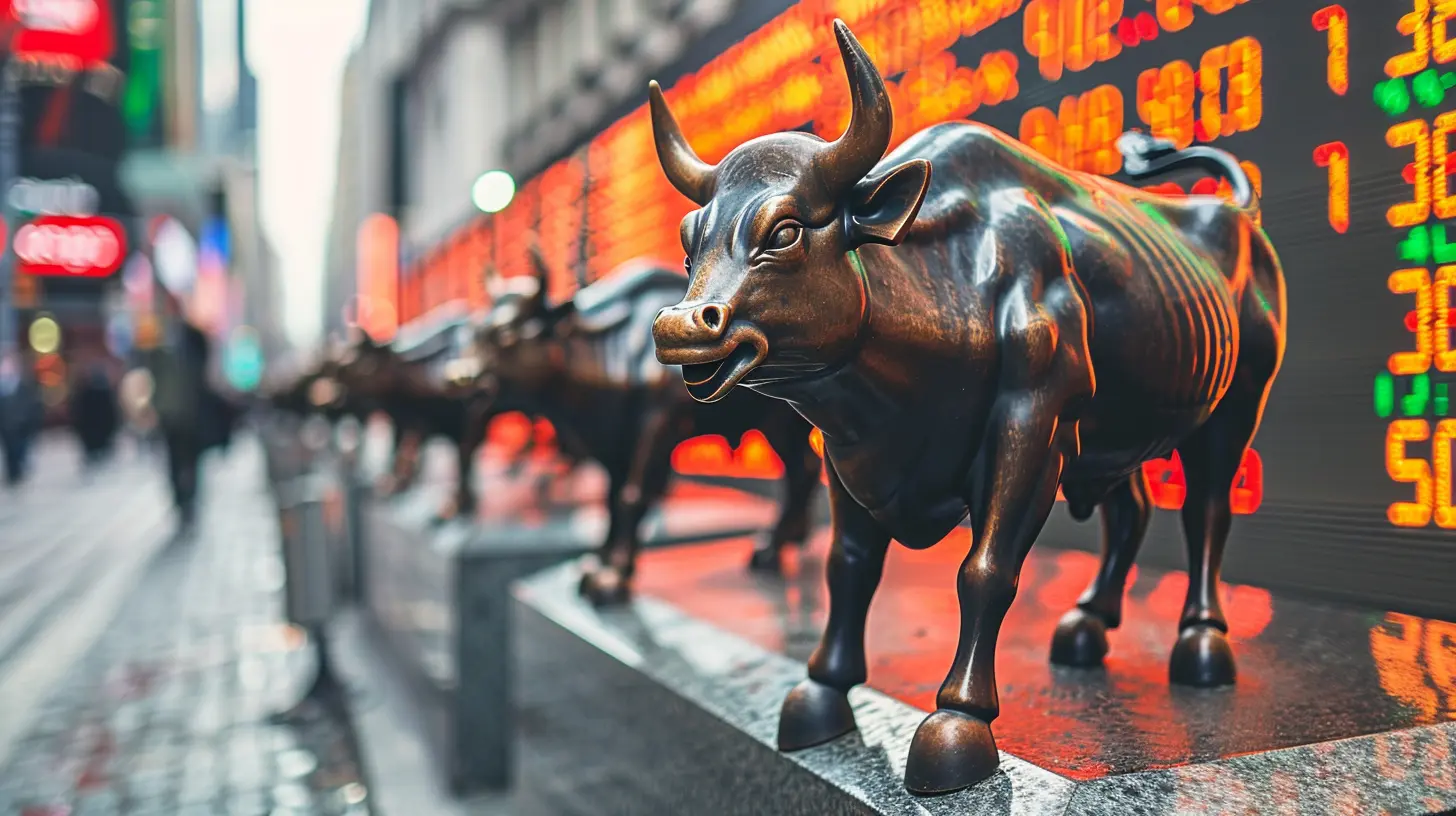15 February 2025
Have you ever wondered what makes stock prices swing wildly when a merger or acquisition (M&A) announcement is made? It's like the stock market suddenly becomes a drama-filled soap opera. Investors panic, rejoice, speculate, and sometimes just scratch their heads, wondering, “What just happened?” Well, sit tight because we're going to break this down in plain English. By the end of this, you'll have a solid understanding of how company mergers and acquisitions impact stock prices. Ready? Let’s dive in! 
What Are Mergers and Acquisitions (M&A)?
First things first—what do mergers and acquisitions even mean? Let’s define this quickly for context.- Mergers: This happens when two companies combine to form one new, larger company. Think of it like a marriage where two entities join forces and operate as one.
- Acquisitions: This is when one company takes over another. In this case, the acquiring company essentially "buys out" the target company.
Simple enough, right? Now, let’s get into why a simple "business marriage" or "business buyout" can send stock prices into a frenzy. 
Stock Prices: A Tug-of-War of Emotions and Expectations
To understand stock price behavior during M&A, it’s essential to know that stock prices are often driven by investor emotions, expectations, and market speculation. Think of the stock market like a crowd watching a magic trick—some people cheer, some boo, and others are just confused. This emotional roller coaster plays a massive role in how share prices react.When M&A news hits the market, it’s not just about the companies involved. Investors start analyzing profits, growth potential, synergies, and yes—whether the “magic trick” will pay off or flop. Let’s explore how M&As typically affect stocks. 
How Mergers and Acquisitions Affect the Acquiring Company’s Stock
1. Short-Term Wobbles: Uncertainty Breeds Volatility
Here’s the thing: investors aren’t all-seeing fortune tellers. The moment an acquisition is announced, stock prices of the acquiring company often fall. Why? Because uncertainty takes over.Think of it like buying a fixer-upper house. Sure, it might have tons of potential, but investors worry about:
- The cost: Will the acquiring company overpay?
- Integration risks: Can two different corporate cultures successfully work together?
- Debt concerns: Did the acquirer take on too much debt to fund the deal?
Investors often want proof that the deal will actually benefit the acquiring company. Until then, the stock might take a hit.
2. Long-Term Gains: If the Deal’s a Success
If the acquisition is successful, the acquiring company’s stock can soar in the long run. For example, if the merger results in higher profits, cost savings (synergies), or increased market share, investors will likely jump back in. Patience pays off in such cases.
How Mergers and Acquisitions Affect the Target Company’s Stock
1. Instant Gains: The Golden Ticket
For the target company, being acquired is often like hitting the lottery. Why? Because the acquiring company typically offers a premium—that’s a fancy word for “extra cash” above the current stock price—to sweeten the deal for the shareholders.For example, if the target company’s stock was trading at $10 per share before the M&A news, the acquiring company might offer $12 per share to entice shareholders to sell. This premium causes the target’s stock price to skyrocket almost immediately after the announcement.
2. Uncertainty in Some Cases
However, it’s not always rosy for the target company. If there are rumors the acquisition might fall through or if regulatory hurdles pop up, the stock price could drop. Investors hate uncertainty as much as they love returns, so any obstacles in the deal process can cause temporary dips.The Role of Market Sentiment: A Snowball Effect
Here’s the kicker: even one person sneezing in the stock market can cause a chain reaction (metaphorically speaking, of course). In M&A situations, market sentiment can snowball.- If investors are optimistic, stock prices might rise beyond anyone’s expectations because everyone’s piling in, hoping to ride the wave.
- If investors are pessimistic, fear can drive prices down further than they should fall.
It’s all about perception. A company could announce the biggest merger of the decade, but if the market doesn’t “buy into” the vision, stock prices might still tank.
The "Synergy" Buzzword: Does It Always Pay Off?
Have you ever heard executives throw around the word “synergy” when discussing mergers? It’s one of those Wall Street buzzwords that sounds fancy but simply means that “two companies working together will accomplish more than they could on their own.”While synergies can lead to cost reductions and revenue growth, they’re not always guaranteed. When synergies fail, M&As can actually destroy shareholder value. That’s why some investors remain skeptical until they see hard evidence of success.
Real-Life Examples: The Good, The Bad, and The Ugly
The Good: Disney Acquiring Pixar
Remember when Disney acquired Pixar? That was a blockbuster move! Investors loved the deal because it made strategic sense and produced real value. Disney’s stock soared over time as the movies churned out billion-dollar revenues.The Bad: AOL and Time Warner
On the flip side, there’s the infamous AOL-Time Warner merger. It’s often called one of the worst in history. The synergies never materialized, and both companies lost billions in value. Investors fled, stock prices plummeted, and it’s now a cautionary tale in the M&A world.The Ugly: Amazon and Whole Foods
When Amazon acquired Whole Foods, there was both praise and criticism. Whole Foods’ stock surged on the news, but Amazon didn’t see immediate stock gains. Over time, though, Amazon proved this acquisition was a strategic win as they capitalized on the grocery market.Other Factors That Impact Stock Prices During M&A
You might be wondering: “Isn’t there more to this stock price thing?” You bet! Let’s list out a few additional factors that can influence the outcome:- Regulatory Approvals: Governments often look at antitrust laws to determine if the merger could hurt competition. If regulators block the deal, stock prices could tumble.
- Timing of the M&A: If the market is in a bearish (downward) cycle, even a good M&A might not immediately reflect in stock prices.
- Macroeconomic Conditions: Interest rates, inflation, and overall economic health can sway how investors react to M&A news.
Key Takeaways
1. For the acquiring company, stock prices might initially fall due to uncertainty but could recover in the long term if the deal proves successful.2. For the target company, stock prices typically rise due to a premium offered by the acquirer.
3. Market sentiment, regulatory approvals, and synergy expectations play a massive role in stock price fluctuations during M&A.
4. Not all mergers are created equal—some succeed spectacularly, while others end in disaster.
Final Thoughts
Mergers and acquisitions are exciting events in the business world. They can create immense value or turn into cautionary tales. For investors, understanding the domino effect of M&A on stock prices is crucial for making informed decisions.Next time you hear about a company merger or acquisition, you’ll know exactly how to interpret the market's reaction. Is it always rational? Nope. But that’s part of the fun, isn’t it?











Soleil Hughes
Mergers boost value; ignore volatility, focus on long-term gains.
April 6, 2025 at 1:00 PM